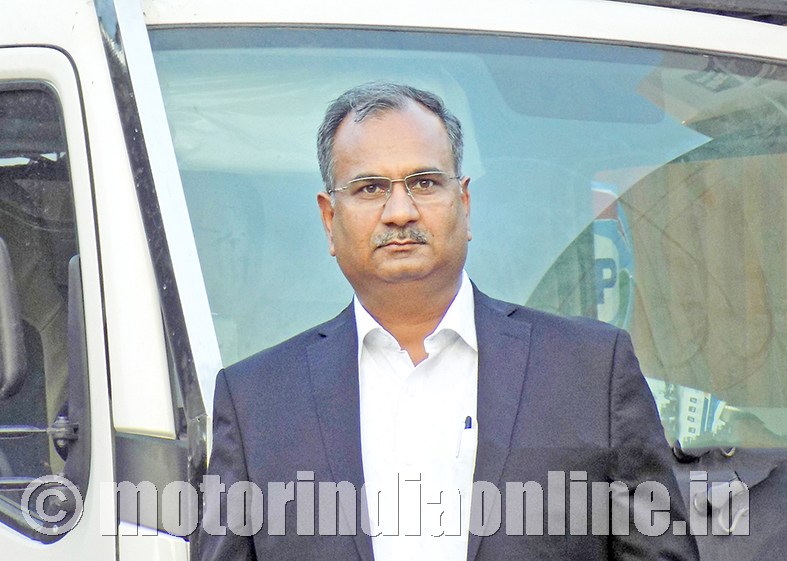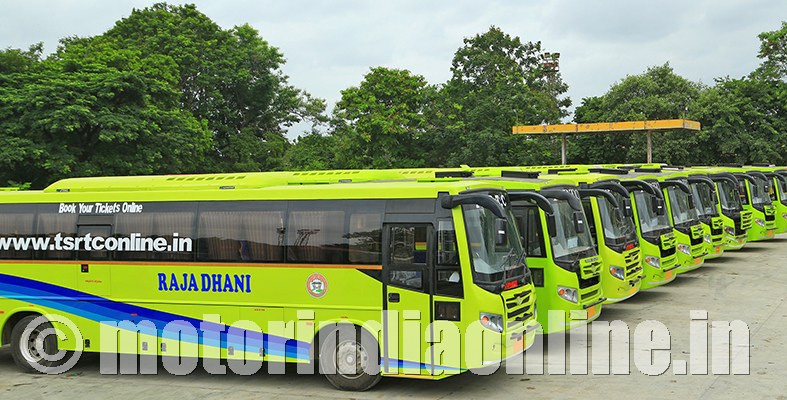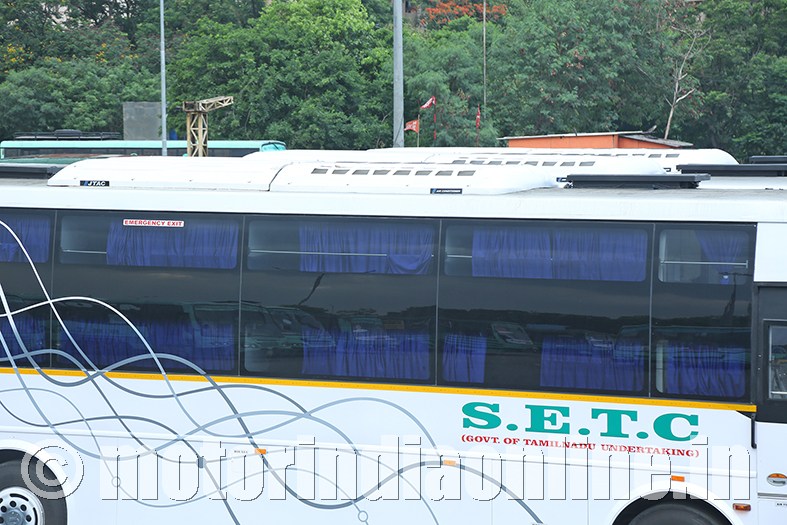The Trans ACNR-owned JTAC brand is steadily growing by registering a growth rate of 30 per cent over the last four years. It strives to maintain and further market leadership in the sector, through technological innovation and specialized range of tailor-made products to suit specific requirements, either touristic and city buses or school buses, of any dimensions, fed to gas-oil or electrically.

Mr. Shatrughan Kumar, Managing Director and Founder of the company, shared his insights with MOTORINDIA on the growth of bus air-conditioning in India, market acceptance of his company’s products, and exciting future prospects for the bus industry in this regard. Here are the excerpts from the interaction:
How is bus transportation evolving in India? Is there any shift in the way commuters view bus travel in India? How do you place air-conditioning in this regard?
There is a marked shift in urban bus commute in India. Electric buses are gaining fast momentum, with Government and STUs mulling over to offer improved and emission-free bus transportation. On the other hand, commuters are increasingly realizing the need for travel that is not only comfortable and safe, but also sustainable to environment. In other words, this imagination is the ‘vox populi’ of the informed public in modern digital age.
The challenge for the bus industry is to come out with ‘avant garde’ design of buses that provide seamless travel with comfort, utility, and safety. I think all bus manufacturers in India have risen up to this challenge, and we, as their A/C supplier are doing our best in providing great value to our product and services.
For instance, last few years has seen a surge in demand for long haul buses (over 1,500 km), especially for multi-axle and sleeper coaches. To combat the peak heat of day time travel, the air-conditioners are required to possess innate flexibility and efficiency, while ensuring optimum cooling in larger cabins. Thus, our tasks remain close with every developments and challenges arising in the bus industry.
How does air-conditioning add value to bus travel to retain its customer base against other modes of transport?
Three to four decades back, air-conditioning in offices, market places, and homes were seen as an indulgence of the luxury. But now it is a necessity. The air-conditioned bus travel in India is now in similar transition, where hard sweaty commute is graduating to better, easier and safer travel. The increasing pollution and high density of traffic will ease away non-A/C bus travel in next 5 to 10 years.
Elaborate on your company’s business performance in FY 2017-18. How is the market acceptance to your bus HVAC products?
Last FY saw us clocking a sale of 4800 units, which is a decline from 5200 units in the previous FY 2016-17, thanks to the overall 30 per cent decline in bus sales in the country. However, we did witness a 20 per cent rise in STU and OEM sales last year, and this trend seems to continue in future as well.
Market response has been tremendous so far. New segment like school and staff transportation are exhibiting increasing demand of air-con systems. Inter-city buses have been on the rise, with majority state governments permitting sleeper coaches to ply on our roads. Yet, urban bus segment is yet to truly take off to its potentials. There remains a long-standing lull in this segment, but the scenario is likely to improve in future.
How efficient are your air-con systems? How are electric and hybrid buses impacting your developments?
An ideal HVAC system should not have any mechanical power delivery to the compressor, and the compressor itself needs to be fully electric. At JTAC, we believe in the wisdom of investing in tomorrow’s profit today . Our electric units are suitable for the bandwidth between 330 volts to 660 volts with variable frequency inverter technology that regulates mass flow of refrigerant as per the prevailing ambient condition of a particular day and as per the occupancy of the bus at any given time. This basically translates to high energy conservation, pivotal for electric buses in particular, so as to retain good charge in their battery packs.
Electric buses are also becoming our major business targets. We are supplying HVAC systems to Goldstone-BYD buses and are in discussion with Tata Motors and Ashok Leyland for their e-bus ranges. JTAC, apart from initiating the homologation of electric A/C units, is also working on manufacturing cooling system for the battery compartments of electric buses.
How promising is the future? Any vision for 2025?
The bus air-con industry in India is on a road with fair share of surprises. The numbers may well stretch beyond anyone’s imagination. 2025 may see a surge from the current annual units of 15,000 to 50,000 units! Our goal is to retain and lead 50 per cent of the market share.
“The challenge for the bus industry is to come out with ‘avant garde’ design of buses that provide seamless travel with comfort, utility, and safety. We are doing our best in providing great value to our product and services.
– Mr. Shatrughan Kumar
JTAC to launch ‘Silent Series’ at Busworld India 2018
A new range of air-conditioning systems specifically designed and developed for sleeper coaches, the JTAC “Silent Series” will be showcased at the upcoming Bus World 2018 later this month. It has customized features for silent and comfortable cabin experience, and will be preferred by coach builders owing to its design and suitability to sleeper applications, claims the company.

